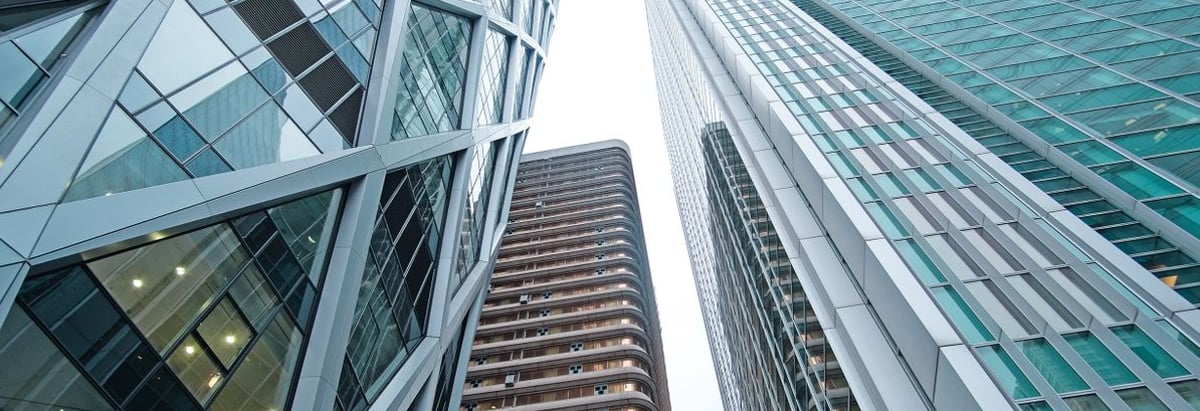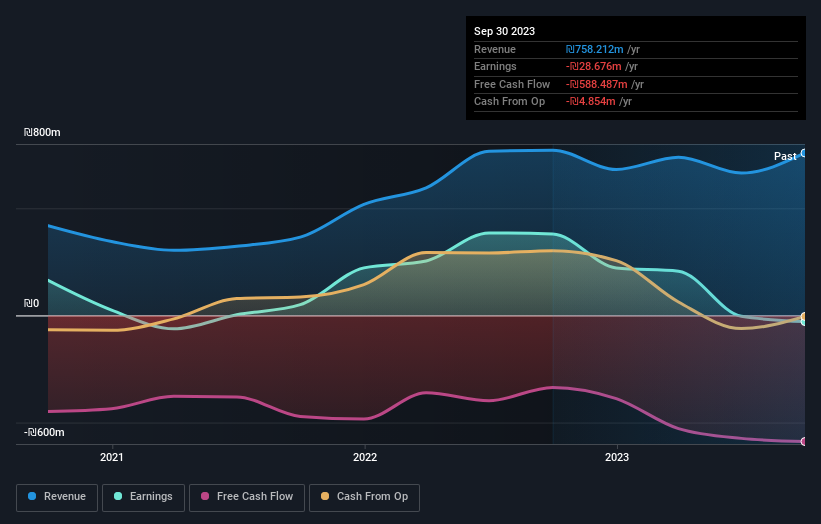- Israel
- /
- Real Estate
- /
- TASE:ILDC
Insiders were the key beneficiaries as The Israel Land Development Company Ltd.'s (TLV:ILDC) market cap rises to ₪1.4b

Key Insights
- Significant insider control over Israel Land Development implies vested interests in company growth
- 52% of the business is held by the top 2 shareholders
- 24% of Israel Land Development is held by Institutions
If you want to know who really controls The Israel Land Development Company Ltd. (TLV:ILDC), then you'll have to look at the makeup of its share registry. The group holding the most number of shares in the company, around 52% to be precise, is individual insiders. Put another way, the group faces the maximum upside potential (or downside risk).
As a result, insiders were the biggest beneficiaries of last week’s 15% gain.
Let's take a closer look to see what the different types of shareholders can tell us about Israel Land Development.
Check out our latest analysis for Israel Land Development

What Does The Institutional Ownership Tell Us About Israel Land Development?
Institutions typically measure themselves against a benchmark when reporting to their own investors, so they often become more enthusiastic about a stock once it's included in a major index. We would expect most companies to have some institutions on the register, especially if they are growing.
Israel Land Development already has institutions on the share registry. Indeed, they own a respectable stake in the company. This can indicate that the company has a certain degree of credibility in the investment community. However, it is best to be wary of relying on the supposed validation that comes with institutional investors. They too, get it wrong sometimes. When multiple institutions own a stock, there's always a risk that they are in a 'crowded trade'. When such a trade goes wrong, multiple parties may compete to sell stock fast. This risk is higher in a company without a history of growth. You can see Israel Land Development's historic earnings and revenue below, but keep in mind there's always more to the story.

We note that hedge funds don't have a meaningful investment in Israel Land Development. Jackob Nimrodi is currently the largest shareholder, with 27% of shares outstanding. Meanwhile, the second and third largest shareholders, hold 24% and 7.8%, of the shares outstanding, respectively. Ofer Nimrodi, who is the second-largest shareholder, also happens to hold the title of Chief Executive Officer.
A more detailed study of the shareholder registry showed us that 2 of the top shareholders have a considerable amount of ownership in the company, via their 52% stake.
Researching institutional ownership is a good way to gauge and filter a stock's expected performance. The same can be achieved by studying analyst sentiments. Our information suggests that there isn't any analyst coverage of the stock, so it is probably little known.
Insider Ownership Of Israel Land Development
While the precise definition of an insider can be subjective, almost everyone considers board members to be insiders. Management ultimately answers to the board. However, it is not uncommon for managers to be executive board members, especially if they are a founder or the CEO.
Most consider insider ownership a positive because it can indicate the board is well aligned with other shareholders. However, on some occasions too much power is concentrated within this group.
Our most recent data indicates that insiders own the majority of The Israel Land Development Company Ltd.. This means they can collectively make decisions for the company. So they have a ₪712m stake in this ₪1.4b business. It is good to see this level of investment. You can check here to see if those insiders have been buying recently.
General Public Ownership
The general public, who are usually individual investors, hold a 23% stake in Israel Land Development. While this size of ownership may not be enough to sway a policy decision in their favour, they can still make a collective impact on company policies.
Next Steps:
It's always worth thinking about the different groups who own shares in a company. But to understand Israel Land Development better, we need to consider many other factors. For example, we've discovered 3 warning signs for Israel Land Development (2 make us uncomfortable!) that you should be aware of before investing here.
If you would prefer check out another company -- one with potentially superior financials -- then do not miss this free list of interesting companies, backed by strong financial data.
NB: Figures in this article are calculated using data from the last twelve months, which refer to the 12-month period ending on the last date of the month the financial statement is dated. This may not be consistent with full year annual report figures.
New: AI Stock Screener & Alerts
Our new AI Stock Screener scans the market every day to uncover opportunities.
• Dividend Powerhouses (3%+ Yield)
• Undervalued Small Caps with Insider Buying
• High growth Tech and AI Companies
Or build your own from over 50 metrics.
Have feedback on this article? Concerned about the content? Get in touch with us directly. Alternatively, email editorial-team (at) simplywallst.com.
This article by Simply Wall St is general in nature. We provide commentary based on historical data and analyst forecasts only using an unbiased methodology and our articles are not intended to be financial advice. It does not constitute a recommendation to buy or sell any stock, and does not take account of your objectives, or your financial situation. We aim to bring you long-term focused analysis driven by fundamental data. Note that our analysis may not factor in the latest price-sensitive company announcements or qualitative material. Simply Wall St has no position in any stocks mentioned.
About TASE:ILDC
Israel Land Development
Primarily engages in the real estate business in Israel, Poland, and internationally.
Slight with questionable track record.


